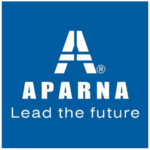
The Indian building materials industry is evolving
Today the building materials segment in India is pegged as a USD 225 billion industry. Industry experts predict a strong recovery rate for the construction and building materials sector through FY2021-22, buoyed by the Centre’s focus on expediting infrastructure development.
The building materials industry is one of the few expected to regain momentum in leaps and bounds through the ongoing financial cycle. It has the potential to witness a growth rate of around five percent to 10 percent by 2022. Even the Ready-mix Concrete (RMC) sector, a critical part of the building materials industry, is expected to register a Compound Annual Growth Rate (CAGR) of more than eight percent in the next two years. Much of the growth will be fuelled by the industry’s focused push towards supporting infrastructural development.
A lot has changed in the sector in the past decade, which has supported the segment’s resilient growth trajectory. Here are some of the significant shifts that have impacted the industry positively and are worth taking note of:
Increased adoption of technology across verticals
The sector fundamentally has been very mechanical and workforce dependent. However, over the last few years, there is an increased shift towards the adoption of technology to improve quality, product shelf life, employee productivity and overall output. From a quality point of view, the concrete mix used in construction has heavily adopted technology, especially for automatic mixing of RMC (instead of traditional manual mixing), pumping RMC to high-rise building structures, maintaining durability via the use of mixers.
Even for the tile manufacturing segment, technology has taken the front seat, especially with the introduction of digital printing on tiles which has opened new avenues and choices for consumers. Additionally, in the uPVC segment, technology has been extensively used to increase the production capacity while enhancing product quality and finish.
Becoming more environment-conscious
Sustainable building practices is the need of the hour, given the turmoil that our environment is going through. The industry has become more sensitive and is adopting better practices for manufacturing building materials. One of the major developments in the shift towards the use of manufactured sand in construction instead of organic sand to avoid further depletion of river beds.
Policy changes driving a positive change for the sector
Over the last five years, the eco-system has witnessed multiple policy reforms like the introduction of RERA, affordable housing and Make in India, which in turn has boosted the demand for building materials providing the industry with the needed impetus for growth.
Increased focus on infrastructural development
Taking a closer look at the major budget allocation over the last decade, it is evident that infrastructure development has been the focus of the government as well as the industry. The dedicated push towards PMAY, affordable housing projects, road, railways and airport infrastructure development have all been contributing to increasing demand and will continue to do so in the near future.
Setting new benchmarks during the global crisis
One of the most striking shifts in this industry is the way it has managed the workforce over the last year during the COVID-19 global pandemic. Nearly 100 percent of this industry is used to the traditional methods of working and workplace policies, but the lockdown pushed the sector to relook at workplace strategy and enable a more hybrid form of working overnight. The resilience that the sector has shown requires will set the tone for defining the future of the workforce in this industry.
Despite the ongoing challenges, days ahead for the industry look very promising, provided organizations address the pandemic challenges most effectively and appropriately, keep up the workforce’s morale, and continue adopting best practices to optimize growth, quality, and brand value.
This article was contributed by Ashwin Reddy, Managing Director, Aparna Enterprises Ltd.
